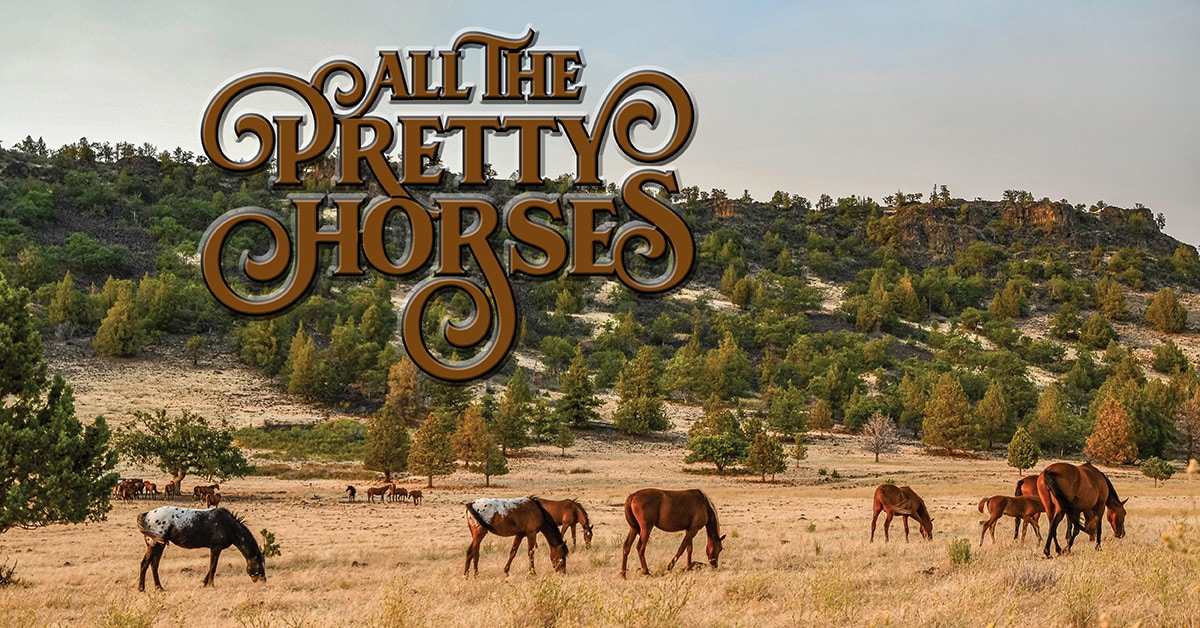All the Pretty Horses
On the Range with the Wild Horse Fire Brigade…
William Simpson II has had multiple careers as a pilot, Merchant Marine officer, and commercial fisherman. Now, at 71, with his own roaming days over, he manages a 30,000-acre spread near the Oregon border with 150 wild horses roaming all over it. Simpson was drawn to the wildness of the place when he purchased a ranch on it 10 years ago, but over the years he’s become deeply attached to the horses, too, to the point where they’re a kind of extended family.
In these sprawling wildlands, Simpson and his partner, Michelle Gough, mostly just let the horses do their thing: roving in family herds of up to two dozen horses, foraging for grass and brush, and keeping a watchful eye for the mountain lions that prowl this range.
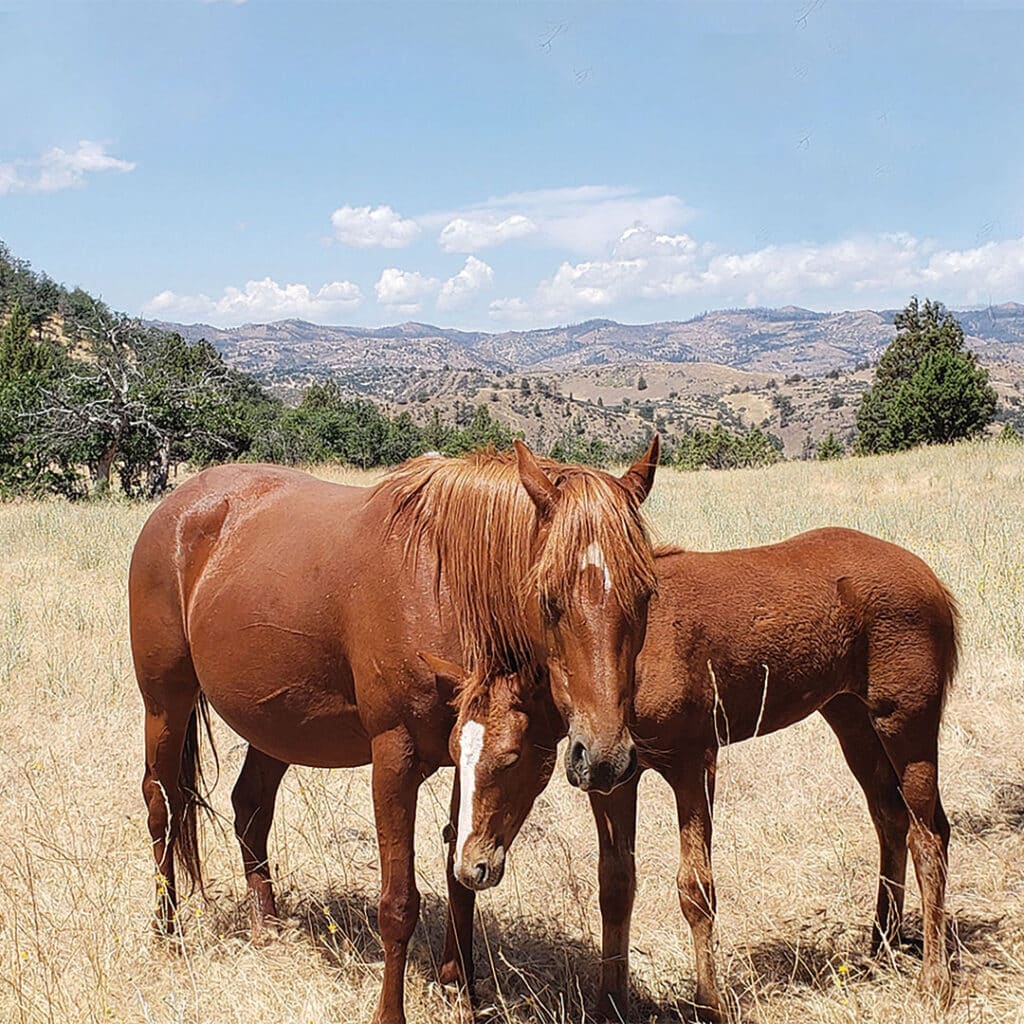
These family groups typically have a lead stallion who watches out for, and sometimes battles, predators. He’s paired with a lead mare, an older horse who with her knowledge and experience can lead the herd to the best places to find water and food.
Over the years, many of these horses have become comfortable with their human neighbors, to the point where one or two of the wild horses, or even a whole herd, will wander onto their ranch. A couple of years ago a mare, whom they nicknamed “Luna” because of the crescent-shaped spot on her head, visited the ranch with her filly, who had an injured front leg. Gough speculates that the filly’s injury might have occurred during a fight between two rival stallions in a dysfunctional family.
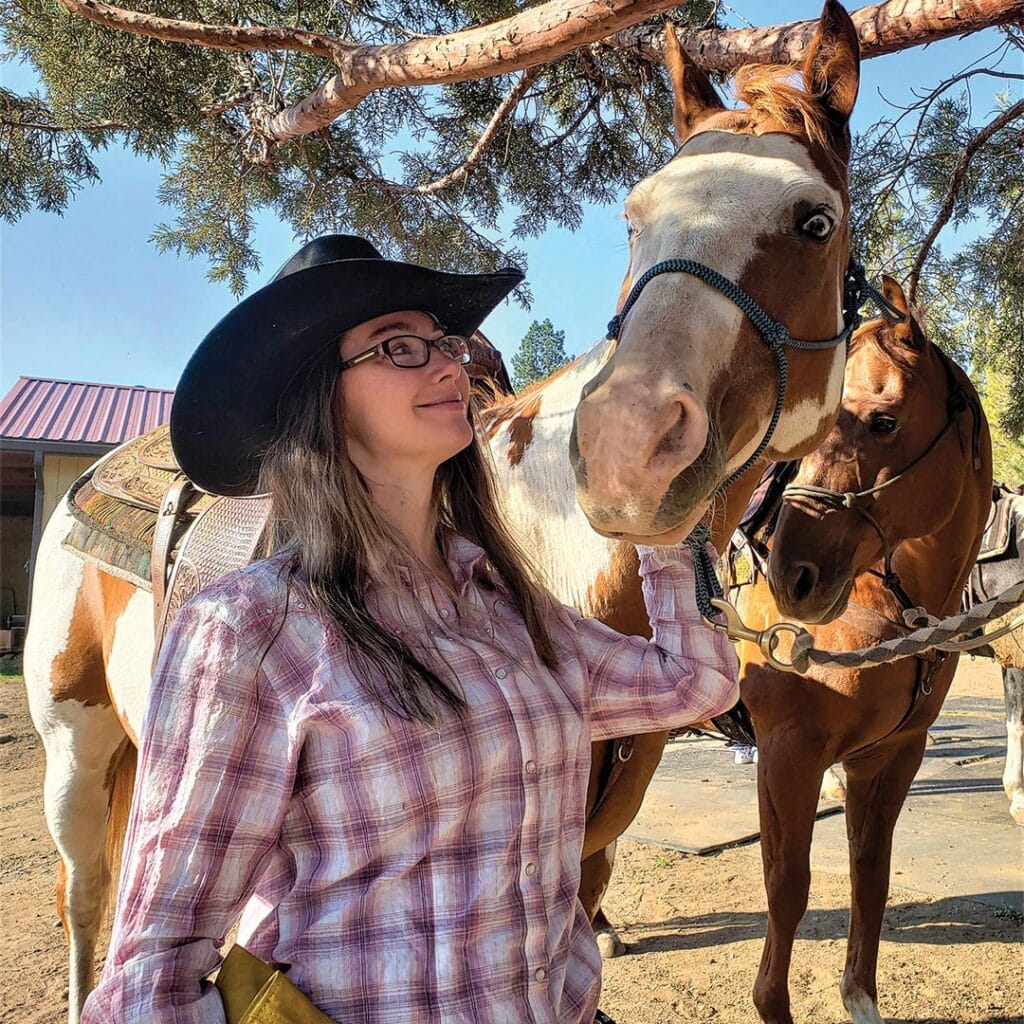
Luna’s stay on the ranch with her filly was a peaceful interlude of a couple of weeks. At one point, Gough sent the filly to be treated by a vet at the nearby Humanity for Horses. Unfortunately, the injury was serious enough to prevent the filly from ever being able to go back into the wild. So she remained at the horse sanctuary while her mother left the ranch to join another, hopefully more stable, family.
Collapsed and hidden barbed-wire fences can cause serious injuries to the horses. Occasionally one of these injured horses shows up at the ranch, apparently knowing, instinctively, that help is available. Gough, a former nurse practitioner, treats the wounds with a special mix of powdered charcoal and sulfur.
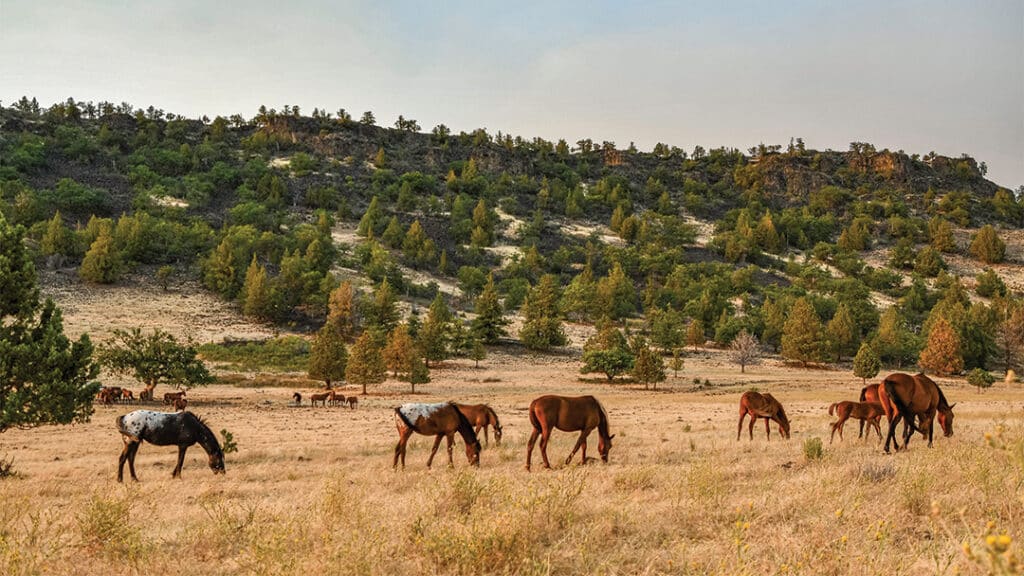
Over the years, Gough has established close relationships with many of the wild horses. “Sometimes a year can pass before one of the horses I’ve bonded with comes back to the ranch,” she says. “We just pick up where we left off. Once you establish a bond with them, they never forget.”
Simpson and Gough live pretty simply on their borderland ranch. Power comes from solar panels and heat from a wood stove. The closest grocery store is 60 miles away. For Simpson, all of this
is nothing new; he grew up chopping wood, drawing well water, and riding horses on a ranch in the Applegate Valley near Grants Pass.
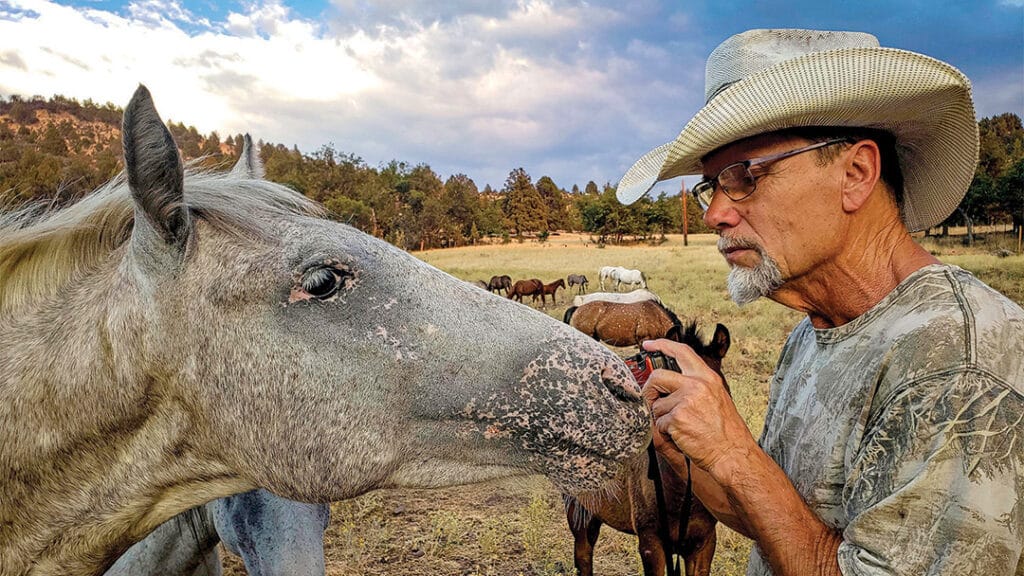
Simpson is on a mission to educate the public about wild horses and the benefits they provide humans and the environment in general. His operation, dubbed Wild Horse Fire Brigade, has been featured on National Public Radio, all three major news networks and the Atlantic Monthly.
Simpson’s message is pretty simple: Through their foraging, wild horses help reduce the impact of wildfires by reducing the undergrowth that helps wildfires spread and grow hotter. And they benefit other foraging wild animals— deer, rabbits, and quail among them — by replanting much of the vegetation they eat by excreting the seeds.
Simpson notes that wild horses are under siege throughout much of the West, on the public lands managed by the Bureau of Land Management (BLM), where their need for extensive grazing land conflicts with gas, oil and mineral extraction on those same public lands. The BLM’s solution to the conflict has been to round the horses up, corral them, and feed them through federal subsidies.
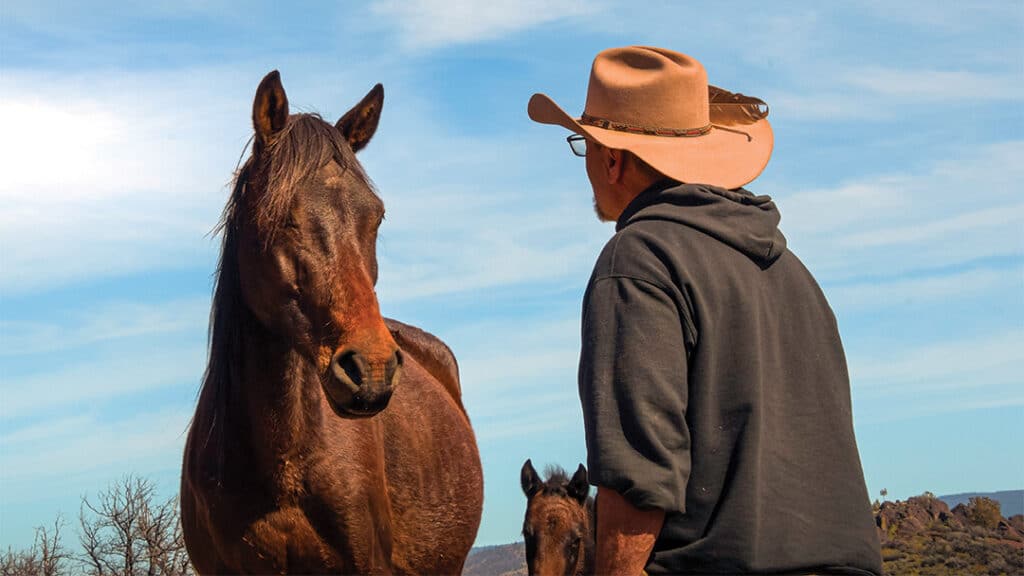
Simpson has a simple solution to this. He proposes to move these wild horses “off the battlefield” of public lands and onto some of the 353 million acres of privately owned timberland in the United States. Timber companies, he notes, would benefit from the horses’ wildfire mitigation impacts. And it would save taxpayers the money currently used to pay for the horses’ board and keep.
Through their example Simpson and Gough are showing how free-roaming horses can play a positive role in the wildlands, while not only benefiting, but bonding with, their human neighbors.•
Wild Horse Fire Brigade
www.wildhorsefirebrigade.org

